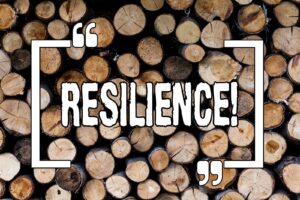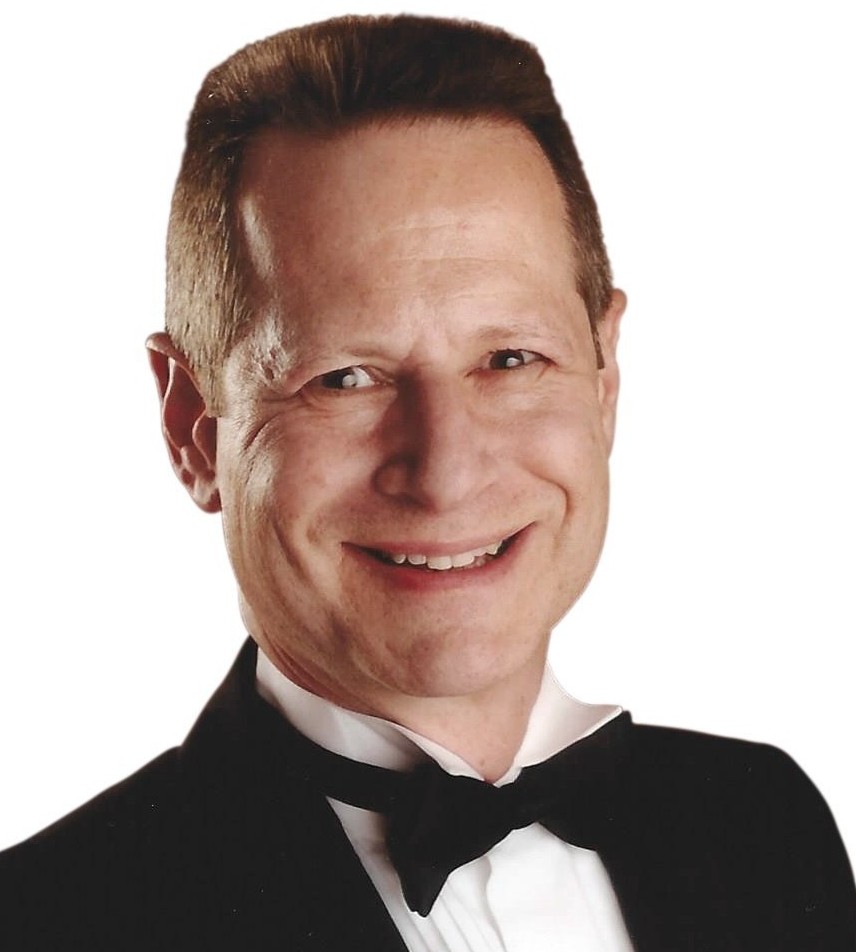
Resiliency – It’s about being the light for others and letting others be the light for us.

|
“It’s beginning to look a lot unlike Christmas and Hanukkah…” This year, we might be tempted to change the lyrics of this nearly 70-year-old holiday classic to fit the mood of the times. But not so fast. Sure, this year the holidays do look and feel different—smaller for one, minus the parties and traveling for another. But there are certain times of the year that are steeped in tradition—this is one of those times. While we can deeply honor tradition, we must also pivot forward, with meaning that is both timeless and timelier than ever: It’s about being the light for others— and letting others be the light for us. Holiday cards were a big tradition when I was growing up. My mom would set up a couple of folding tables in the living room where she wrote and addressed more than 500 cards by hand. Not just a few lines—full-blown notes! In those days, everyone’s mailbox was full of cards. They were displayed everywhere—bookshelves, in the slats of louver doors, and taped to the woodwork around doorways. For our family, it was all about that refrigerator door where we displayed the most cherished cards. So barren all year and then suddenly—little by little—filled with life, color, pictures, the annual update letters from family and friends, and invitations to holiday gatherings. The refrigerator transformed into the light of our home during the holidays. We couldn’t walk past it without opening a card, re-reading greetings, rekindling fond memories, and feeling sparks of love and connection. When our company was smaller, I tried to continue this tradition. Starting in the middle of October, I carried around a tote bag full of cards that I wrote out to hundreds of colleagues. Whenever I had a spare moment, I wrote out a few. If ever there was a year to go old school with a box of cards, some handwritten notes, and a sheet of stamps, this is it. But it doesn’t take hundreds of cards, and there’s no need to be the Hemingway of holiday greetings. A few cards with a simple, sincere message can make all the difference in another person’s life. Unfortunately, what we all need the most—is probably what we’ll do the least. Yet, now more than ever, we need to create that refrigerator door for ourselves and others by sharing authentic expressions of our love and connection. But probably not simply on the bottom of an email. Like the one I received the other day: “Have a wonderful holiday season.” As I read it through the lens of 2020, I reflected on what that means this year. And so, I asked family, friends, and colleagues how they felt about wishing someone “happy holidays.” Not surprisingly, their answers were all over the map: I don’t know if it feels right to say that. I actually do want people to be happy. Does someone really mean it—or are they just saying it? At least ‘holidays’ is a more appropriate word than assuming everyone celebrates the same way. Maybe it’s the Midwest in me, but I really mean it this year. We bought a tree and decorated early. We are so ready for this. Are you kidding me? You can’t say that to people without knowing what’s going on in their lives. These candid replies remind me that we can’t assume anything, especially what people are feeling right now. The Emotion Curve swings to higher highs and lower lows at this time of year. We used to look forward to presents—and now we yearn for others to be present. This year, personal losses run deep. Our colleague Doug Charles, President of our Americas region, told me this week that his family will be celebrating their first holiday without Doug’s father. “For many in my family, having one less present to give makes it difficult to get excited,” Doug confided. And yet, as he told me, “It’s also the first Christmas with my granddaughter.” In my own life, I have experienced both ends of the spectrum. I remember one long-ago, eating by myself at a diner. Then, many years later, we brought our newborn son, Jack, home from the hospital at during the holiday season. Having known the bitter, we can truly savor the sweet. It’s like that lyric in a George Strait song, “There’s always lost in the found, and darkness in the I-saw-the-light.” That’s the calling card of 2020, the ups and downs of a very different holiday season. Even in the mist, we can be the light—and find illumination. Here are some thoughts:
Whatever we celebrate, however we celebrate, let us remember why we celebrate. When we connect our hearts with others, we spark hope, we kindle joy, we become the light. And when we pick up a pen to write a holiday card, if we don’t know what to say, three words will do: I love you. Indeed, that should be our hallmark for 2020. Let’s be Resilient in 2021 together. Contributor: Gary Burnison, Korn Ferry CEO.  Cliff Locks is a trusted confidant to CEOs, C-Level Exec, and high-potential employees to help them clarify goals, unlock their potential, and create actionable strategic plans.Certified Professional Board of Director and Advisor.I am a trusted confidant and advisor available by Zoom and by phone to be your right-hand man, who will make a significant contribution and impact on your way to success. As a Trusted Confidant Advisor, I support you, along with your company’s strategic and annual operating plan. This plan may include marketing, sales, product development, supply chain, hiring policies, compensation, benefits, performance management, and succession planning. Most successful leaders enjoy talking to someone about their experiences, which is why most develop a close relationship with a Trusted Confidant—a person with whom they feel free to share their thoughts, concerns, and ideas without fear of sharing too much or being judged by the people they lead, or their colleagues and superiors. I am a sounding board who will help you to better develop and see your ideas through to fruition. The most effective Executive find confidants who complement their strengths and sharpen their effectiveness. Bill Gates uses Steve Ballmer in this way; Warren Buffett turns to vice chairman Charlie Munger. In the end, both the Executive and their organizations benefit from these relationships. As your trusted confidant, I am always by your side, holding your deepest secrets and never judging. Everything discussed is held in complete confidence. What many executives feel is missing from their busy life is a trusted business person who understands the holistic complexity of both their business and personal life. I strive to provide solid financial, business, and family expertise and serve as a dispassionate sounding board, a role I like to call “Executive Confidant.” By holding a safe place for the Executive to work on life path issues as well as direction, I repeatedly see remarkable benefits as personal values become integrated with wealth and family decisions, enhancing a more meaningful life. As an Executive Confidant, I welcome a confidential conversation about the most important issues facing the business leader, including: • Strategic planning toward your visions of success and goal setting • Operations, planning, and execution • Career transition • Retirement • Legacy • Kids and money • Marriage and divorce • Health concerns • Values and life purpose • Vacations • Mentoring & depth of the executive bench • Succession planning When I do my job well, I facilitate positive action in both your professional and personal life. This consistently has a positive benefit on impacting people within the sphere of your influence. The job of an Executive can be lonely. For various reasons, confiding in colleagues, company associates, family members, or friends presents complications. Powerful, successful, and wealthy individuals often isolate themselves as a protective reaction because of their inability to find people they can trust and confide in. Successful people are often surrounded by many people, yet they insulate and isolate themselves to varying levels of degree. This isolation factor is not often discussed in the same context because the assumption is that success and wealth only solve problems. The false belief is that it does not create more problems, when, in fact, sometimes it creates a unique set of new challenges. Success and wealth do not insulate you from the same pitfalls that the everyday person faces. It may give you access to better solutions perhaps, and that is what I can help you achieve. Financial business success can create unique vulnerabilities, often overlooked as most people feel that the “problems” of the wealthy are not real-life problems. The Executive Confidant can be particularly helpful when: • Aligning life priorities with the responsibilities of wealth. • Wanting more meaning and purpose in life. • Desiring a candid and experienced perspective. • The answers often come from within, and we cannot arrive at them easily. • Clarity often comes into focus, with skilled questions and guided discovery. The right questions can be the first step in achieving ideal outcomes. Who can you turn to when you need to find clarity? Who is your “Executive Confidant”? Referrals to a team members or family members are always welcome. Email me: [email protected] or Schedule a call: Cliff Locks OptimizeLife #CEO #CFO #COO #BoD #CXO #Professionalpedia #TeamBuilder #success #beyourself #goals #lifeisgood #Influencer #Successful #Business #WorkLife #OfficeLife #Work #Office #Inspiration #Marketing #Tips #Leadership #BusinessIntelligence #InvestmentCapitalGrowth |
